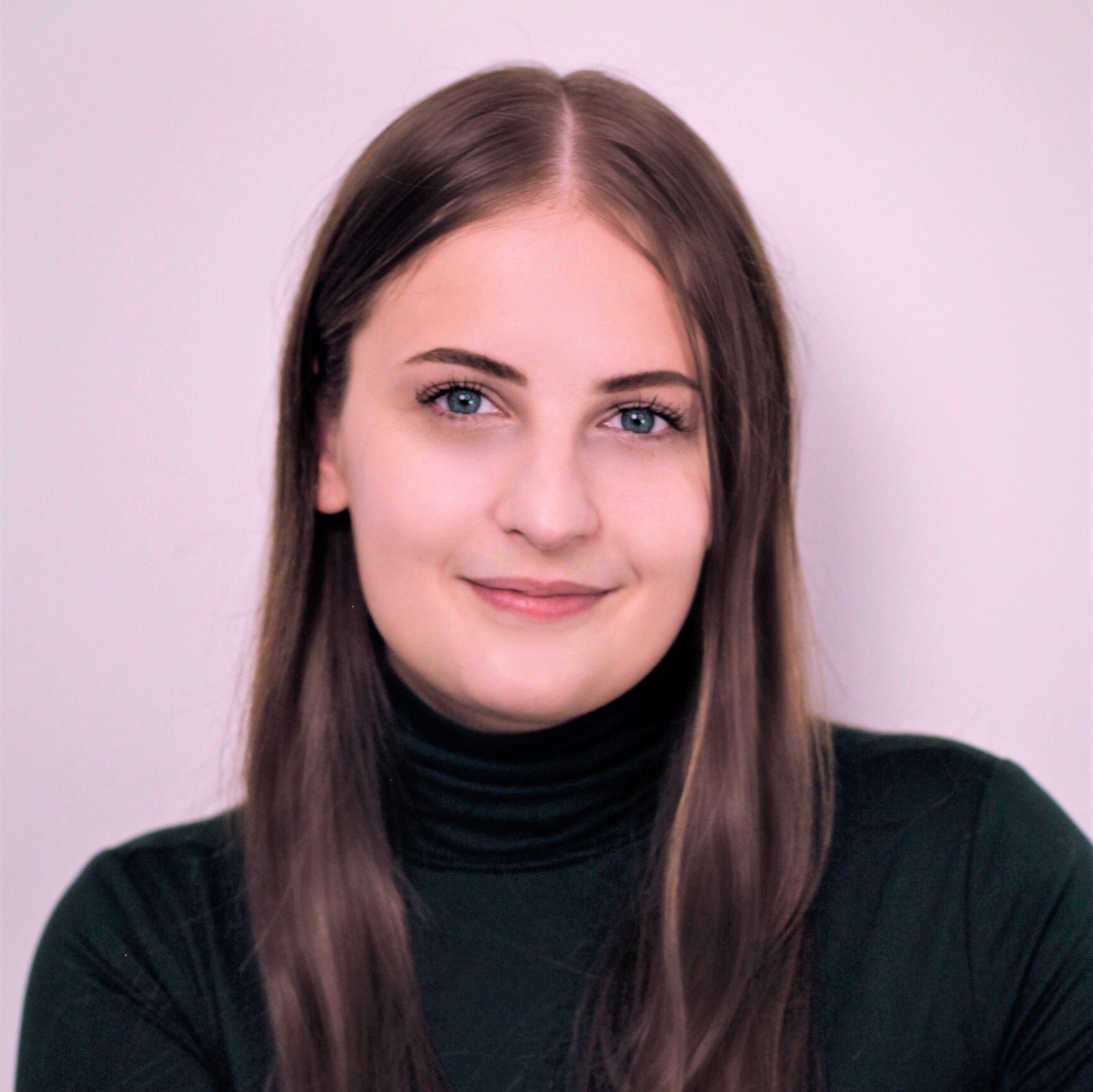Covid-19 devastated her resources, not her resolve

Nicole Paulescu left her hometown near Copenhagen at 18, against her family's wishes, bound to make it in New York as a neurosurgeon. The global pandemic, however, turned the international student’s world upside down and inside out. Paulescu, a Queensborough Community College Health Sciences major, ended up couch surfing in New Jersey and for months could only afford one meal a day, which she consumed just before bedtime to sleep better.
“I didn't tell anybody at the time. I remember my dad calling from Denmark on FaceTime. He broke down and cried because I had lost so much weight,” Paulescu said, describing her experience over the late summer and autumn of 2020. By November, Covid-19 had wrecked Paulescu and her family’s finances.
“I didn’t calculate how difficult it would be to concentrate, hungry. I had a very nice upbringing. I had parents who made sacrifices for me. There was always food on the table. I always had a roof over my head. I had my own room, you know,” she said in January, grateful to have a safe space of her own again, this time in Queens with roommates, and finally food-secure.
It was only when Paulescu, nearly broke, exhausted, and anguished over her situation, responded to an offer of help from a Queensborough faculty member. She quickly became aware of how much her college and CUNY wanted to help her get through her unforeseen circumstances.
“I broke down one day in front of my professor because I had received an unusual score. [She knew] something was happening. So I explained my situation, and she encouraged me to reach out,” Paulescu said, recalling how reluctant she had been to ask for assistance.
The honors student applied for and received an emergency grant through The Carroll and Milton Petrie Foundation that enabled her to stay enrolled as she addressed housing and other resource issues. Queensborough also came through with gift cards, so she was able to buy groceries.
“I cannot even begin to tell you how scared I was to tell [the college] what was going on. I was struggling. I was shocked and amazed by the level of care and support extended to me. It was wonderful and I am very thankful.”
Paulescu could have quit Queensborough. She could have gone back to Denmark, enrolled in its free education (the government pays), and studied nursing. (Though she carries a high GPA now, Paulescu’s high school grades were not good enough, she said, to attend medical school back home.) Her parents and her older sister would have been happy had she returned. They missed her, worried about her, and wanted her home, but the Queensborough undergraduate researcher and Phi Theta Kappa Honor Society member would not give up on her American dream.
“Sitting down and trying to imagine this life for me back home…. It just didn’t satisfy me at all. Any pain or hardship [I have] is temporary. I always knew there would be sacrifices. Becoming a doctor is just non-negotiable.”
Paulescu found resolve and strength in her father’s ex-pat experience. The youngest child in his family, he left home in Romania for Denmark in 1989. His words resounded in her head: “There is always a way, even if you don't know it now. Sleep on it. Think about it later. There is always a way around or underneath or over. You just have to figure it out.”
And she did. The CUNY Research Scholar enrolled in the College’s Emerging Leaders Program, became a designated Supplemental Instructor in Biology, and maintained her studies. In addition, she founded Mentor Associates for Pre-Health Students, or MAPS, a Queensborough organization of about 30 students interested in medical careers.
“I’m most proud of MAPS. Faculty spoke at a research fair we convened in December. A Queensborough alumnus, now at Cornel, came to speak with our members, too. We also offered discussion panels with a medical doctor and surgeon and collaborated with the Student Government Association to help raise money for other food-insecure students,” said the Ivy League hopeful, who will graduate from Queensborough this year.
“I want to study neuroscience and conduct research at Columbia, the University of Pennsylvania, or Yale,” she said, fiddling with a suture kit located in the corner of her desk. Someone is coming by soon to teach her stitching techniques used to close different wounds.
Displayed on her laptop are some files associated with research she started in August on the effects of dendrotoxin, a component of venom produced by the Mamba snake, a native of sub-Saharan Africa and one of the deadliest snakes in the world.
“Even though there are anti venoms available for treatment, the knowledge surrounding dendrotoxin is still limited. Therefore, the antivenom's quality is yet equivalent. As of today, snakebites remain a World Health Organization-listed neglected tropical disease. We hope to contribute to this cause with our research,” explained Paulescu, who models her findings (using the programming language, Python) with Queensborough Associate Professor, Dr. Urszula Golebiewska.
She is also published as a reference author with Dr. Golebiewska, at the National Center for Biotechnology Information, on the complete genome of Streptomyces phage Beuffert, a recently discovered bacteriophage (a virus that infects and replicates within bacteria).
Described as a crazy scientist by her friends, Paulescu unwinds by surrounding herself with stunning neuroscience images that demonstrate how healthy brains work and what occurs in brain disease.
“I know that sounds strange,” she admitted.
“Rough times shape who we are and who we become. No matter the challenge, we must persist through this pandemic, understand that this common experience will shape our continuing education, and realize that there will be new and different opportunities for us to succeed. As young people, we should say yes to possibilities, no matter how scary they may be. That's something I learned in the States.”
###



